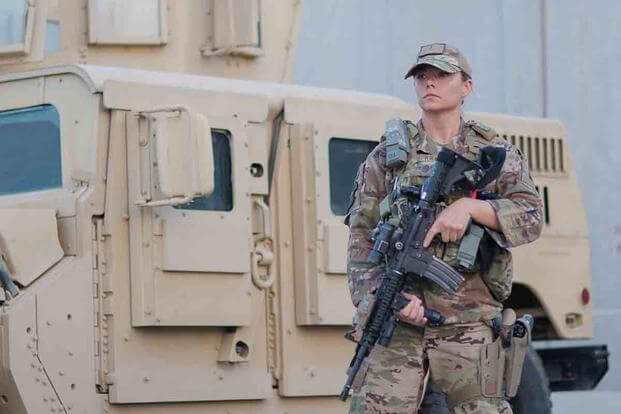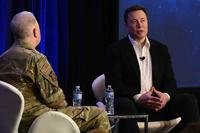Question: As I exit the military, I'm still drawn to a career where I serve and protect. What could a career in the security field look like?
Answer: To answer your question, I asked Anders C. Noyes, chairman of the board of the CSO Center for Leadership and Development at ASIS International, the world's largest membership organization for security management professionals, for his insights.
Here's what he shared:
Lida Citroën: What opportunities exist in the security industry, beyond physical security?
Anders Noyes: "Broadly speaking, 'security' is still often thought of as either physical [as in a security guard of a premises] or cyber [online security of information]. But within the industry, there are numerous risk and resilience disciplines that layer and/or weave security concepts together in both the physical and cyber worlds. Today, businesses recognize the growing importance of securing their facilities, information and people as the nature of work becomes more global, complex, 24/7.
"Today, businesses need to be concerned with global unrest and political instabilities in regions, physical property security, cyberattacks, keeping employees safe as they travel, managing and reducing exposure, and risk around customer information and much more. The opportunities that emerge from this new focus will attract individuals to the security field who have exposure to global issues and cultures, and are flexible, adaptable and have knowledge and skills around threat assessment, analysis and risk mitigation."
LC: How would a veteran coming out of the military be poised to succeed in the security industry?
AN: "Soft skills like problem solving, leadership and emotional intelligence are competencies veterans bring to the industry, which are in high demand. The experiences gained from military training and work assignments apply directly to the business world when one considers the actual skills involved.
"I had a recent conversation with a veteran who questioned his skills for a career as a security professional in a health-care company. In the military, he spent a part of his career as a firearms instructor. While the title of 'firearms instructor' may not be sought by private industry, his skills of strategic planning, problem solving, remaining calm under pressure and his ability to assess and evaluate people and process are impressive and sought after by companies today. When a veteran can distill their training, experience and transferable skills to what a job requires, they will see the parallels. It's important to look past title or rank, and lean into what it takes to successfully do the jobs they've done."
LC: What was helpful to you as you began your career in the security industry?
AN: "When I first transitioned out of law enforcement and into the security industry, I assumed the opportunities were more limited. I thought I had essentially three paths -- bodyguard, investigator, midlevel security guard manager.
"Any of those would have been good jobs after a career as a police officer, but I would have missed other opportunities due to my lack of knowledge and exposure. I was lucky to have a mentor in the industry who showed me that the world of security was a lot more than I believed. I also focused on building a network of colleagues early on, which helped me see all the opportunities that are available."
LC: What advice would you give to someone just entering the security industry?
AN: "Reaching out for help and guidance is crucial, and I think you'll find our industry one of the most welcoming and collaborative. Focus on networking skills to expand your exposure to companies that are growing and hiring and opportunities where your skills, interests and work style align. Joining a trade association in the security industry builds an immediate network that can be helpful to explore options and expand learning and knowledge in the field.
"And bring a growth mindset. Within each of the broad disciplines represented in our sector, including physical and cyber, there are many, many opportunities and nuances. Never underestimate the value of a mentor who can help you see the possibilities and chart a path forward in our growing and dynamic industry."
The author of "Success After Service: How to Take Control of Your Job Search and Career After Military Duty" (2020) and "Your Next Mission: A personal branding guide for the military-to-civilian transition" (2014), Lida Citroën is a keynote speaker and presenter, executive coach, popular TEDx speaker and instructor of multiple courses on LinkedIn Learning. She regularly presents workshops on personal branding, executive presence, leadership communication and reputation risk management.
A contributing writer for Military.com, Lida is a passionate supporter of the military, volunteering her time to help veterans transition to civilian careers and assist employers who seek to hire military talent. She regularly speaks at conferences, corporate meetings and events focused on military transition.
Want to Know More About Veteran Jobs?
Be sure to get the latest news about post-military careers as well as critical info about veteran jobs and all the benefits of service. Subscribe to Military.com and receive customized updates delivered straight to your inbox.












